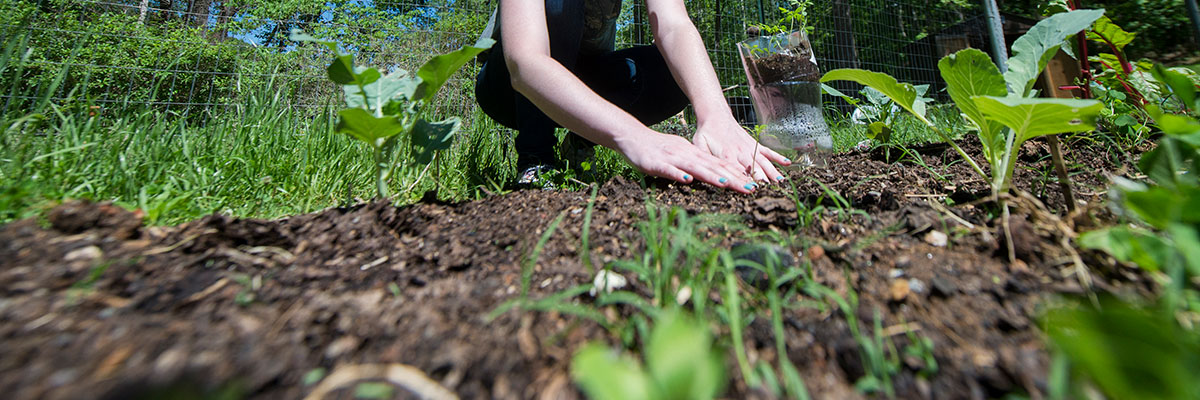Many garden materials were donated by alumni or repurposed from other projects around campus. Henry-Stone continues to incorporate the garden for experiential learning in courses, internships and coordinates other volunteers to help maintain it throughout the year. For instance, students in the Lynchburg Environmental Sustainability Society (LESS) have often enjoyed working in the garden, especially in the fall semester. Members of the Lynchburg community have also come out to help students work and to offer gardening advice.
The Community Garden demonstrates sustainability principles in many ways. While the garden’s nutrient-rich topsoil was purchased through the university’s campus sustainability budget, it continues to be developed through composting and cover cropping. The underlying sand that was the volleyball court provides drainage. In 2018, a rainwater tank was installed to collect rainwater from the roof of the cabin that houses the Center for Water Quality. Not only does the tank help reduce potential erosion from heavy rainfall; it also irrigates the garden through a gravity-fed pipe. Rebuilding soil quality and education of sustainable agriculture continue to be at the forefront of the garden’s goals. The garden also provides a habitat for native insects, birds, and other wildlife.


